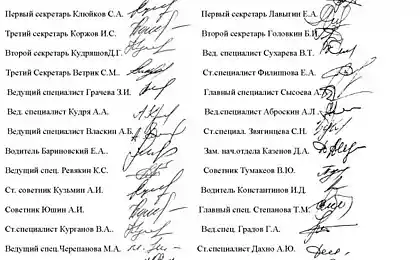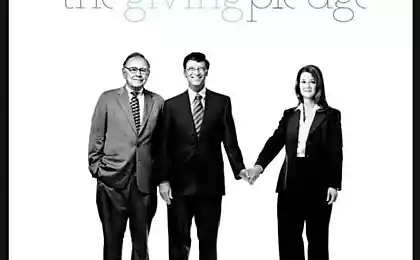447
Facebook co-founder Dustin moskovitz about the balance of work and rest
On 15 August the New York Times published a great article about working conditions in Amazon —about 100 former and current employees of the American company told the publication about the "ruthless" system optimization work, which helps it giant "to squeeze out of the workers all the best".
Co-founder of social network Facebook and service for collaboration Asana Dustin Mosquits in his blog on the Medium said that the traditional eight-hour schedule is beneficial not only for employees but also for companies. CPU published a translation of the notes Moskowitz.
Forty eight million two hundred ninety two thousand four hundred forty
Amazon is not the only company, employees exhausting their impossible requirements. It's time to break out of this vicious circle. Last week I spoke with a group of ambitious students from SPARC, Berkeley. A few people have asked me what I would like to do or know in advance, and the regrets that are associated with previous years of my work. And I keep coming back to the idea that he would like to live my life differently.
I would like more sleep and exercise regularly. I would be more concerned about what I eat or drink in that time (when you create a Facebook —approx. ed.) I consumed more soda and energy drinks than water. I would like to have more time for new activities that have helped me grow incredibly as soon as I gave them a chance.
You may think, but if you set priorities so isn't that would decrease your contribution? Maybe then Facebook would be less successful?
In fact, I believe that I could be more efficient than before: for example, a better leader and a more focused employee. I would have had less panic attacks and there would be some health problems — for example, back in my twenty odd years. I would have had less hassles with colleagues, because I would be more focused. I would be less upset and worry about small problems that made me spend hours to cope with local crises.
In short, I would have had more energy and I would use it smarter. And I'd be happier. That's why all this is a real regret for me: I don't feel I had to choose between two worthwhile options. No, I brought the stupid casualties on both sides.
This week, the technology industry is actively discussing a recent article by the New York Times about the tense working atmosphere in the Amazon. Many people find this article one-sided, using dramatic stories in order to create a caricature of a culture built on passion and suspense. At the same time, some insiders decided to publicly defend the company. However, I think most people don't argue with the fact that the culture at Amazon is really quite tense, and to work in this company really need to work hard. In fact, it is the Foundation of the technology industry: in successful companies, employees are working to the limit — as it seems to be unacceptable to most people.
But it doesn't have to be that way.
Most people believe that the weekend and the forty-hour work week is a sort of compromise between capitalism and hedonism. But this is not historically true.
Actually is carefully bred, the result of a study on the improvement of results, conducted by Henry Ford in the early twentieth century. He found that you can get more results from people if you allow them to work fewer days and fewer hours. Since then, other researchers continue to study this phenomenon in a more modern industries, for example, when creating games..
The results are clear: when the threshold is exceeded in the working 40-50 hours a week, positive results from additional work decline sharply and become negative. They also show that if you are trying to get more results using "couple intense weeks", then in any case you pay in time then you need to restore.
If you are trying to extend the time of hard work, you simply create the illusion of increased speed. This is true on several levels: in the calculation of hours worked per week, number of minutes of concentration and relaxation, as well as the number of vacation days for the year. The rest is important.
Sixteen million six hundred twelve thousand six hundred seven
From the book the Lost Garden: Rules of Productivity. There is a big difference between indicators of productivity, which we plan to achieve in overtime, and those that we actually receive.
What I see in the present tense culture of the technology industry, very sad. I believe that these companies are destroying the lives of their employees, while receiving nothing in return.
A student who had to choose between Asana and other fast-growing company, told me that. second team eats dinner at half past eight p.m., to motivate workers to stay longer. I heard that the young developers often boast kodersky sprints that last for 48 hours.
This attitude is not only harmful to novice workers who want to demonstrate their interest in the work, but also support sexism and ageism, discriminating people who can't follow that schedule.
Why do companies do this? This is likely the result of some combination of that:
I don't know what I would do if I really believed the number of working hours and rate of development of the company's related concepts. Fortunately, they are not. We are equally good to combine to promote a healthy balance between work and personal life and cold hard pursuit of profit. We will maximize our speed and our happiness.
Our industry is far from its potential. We could all achieve more, we could give better living conditions to all workers in the industry. If you are going to devote the best years of your life working — make it meaningful. You can do great things, while living your life. You can have everything the science says you should do so.
Note: I wrote this text from the perspective of the it industry, but this model could certainly apply to companies in all industries. published
P. S. And remember, just changing your mind — together we change the world! ©
Source: siliconrus.com/2015/08/work-hard-live-well/?from=rss
Co-founder of social network Facebook and service for collaboration Asana Dustin Mosquits in his blog on the Medium said that the traditional eight-hour schedule is beneficial not only for employees but also for companies. CPU published a translation of the notes Moskowitz.
Forty eight million two hundred ninety two thousand four hundred forty
Amazon is not the only company, employees exhausting their impossible requirements. It's time to break out of this vicious circle. Last week I spoke with a group of ambitious students from SPARC, Berkeley. A few people have asked me what I would like to do or know in advance, and the regrets that are associated with previous years of my work. And I keep coming back to the idea that he would like to live my life differently.
I would like more sleep and exercise regularly. I would be more concerned about what I eat or drink in that time (when you create a Facebook —approx. ed.) I consumed more soda and energy drinks than water. I would like to have more time for new activities that have helped me grow incredibly as soon as I gave them a chance.
You may think, but if you set priorities so isn't that would decrease your contribution? Maybe then Facebook would be less successful?
In fact, I believe that I could be more efficient than before: for example, a better leader and a more focused employee. I would have had less panic attacks and there would be some health problems — for example, back in my twenty odd years. I would have had less hassles with colleagues, because I would be more focused. I would be less upset and worry about small problems that made me spend hours to cope with local crises.
In short, I would have had more energy and I would use it smarter. And I'd be happier. That's why all this is a real regret for me: I don't feel I had to choose between two worthwhile options. No, I brought the stupid casualties on both sides.
This week, the technology industry is actively discussing a recent article by the New York Times about the tense working atmosphere in the Amazon. Many people find this article one-sided, using dramatic stories in order to create a caricature of a culture built on passion and suspense. At the same time, some insiders decided to publicly defend the company. However, I think most people don't argue with the fact that the culture at Amazon is really quite tense, and to work in this company really need to work hard. In fact, it is the Foundation of the technology industry: in successful companies, employees are working to the limit — as it seems to be unacceptable to most people.
But it doesn't have to be that way.
Most people believe that the weekend and the forty-hour work week is a sort of compromise between capitalism and hedonism. But this is not historically true.
Actually is carefully bred, the result of a study on the improvement of results, conducted by Henry Ford in the early twentieth century. He found that you can get more results from people if you allow them to work fewer days and fewer hours. Since then, other researchers continue to study this phenomenon in a more modern industries, for example, when creating games..
The results are clear: when the threshold is exceeded in the working 40-50 hours a week, positive results from additional work decline sharply and become negative. They also show that if you are trying to get more results using "couple intense weeks", then in any case you pay in time then you need to restore.
If you are trying to extend the time of hard work, you simply create the illusion of increased speed. This is true on several levels: in the calculation of hours worked per week, number of minutes of concentration and relaxation, as well as the number of vacation days for the year. The rest is important.
Sixteen million six hundred twelve thousand six hundred seven
From the book the Lost Garden: Rules of Productivity. There is a big difference between indicators of productivity, which we plan to achieve in overtime, and those that we actually receive.
What I see in the present tense culture of the technology industry, very sad. I believe that these companies are destroying the lives of their employees, while receiving nothing in return.
A student who had to choose between Asana and other fast-growing company, told me that. second team eats dinner at half past eight p.m., to motivate workers to stay longer. I heard that the young developers often boast kodersky sprints that last for 48 hours.
This attitude is not only harmful to novice workers who want to demonstrate their interest in the work, but also support sexism and ageism, discriminating people who can't follow that schedule.
Why do companies do this? This is likely the result of some combination of that:
- they don't know about the research (productivity — approx. ed.);
- they believe that research is wrong, or do not belong to them (they are wrong);
- most people believe that working overtime is an indicator of the activity and loyalty to the company.
I don't know what I would do if I really believed the number of working hours and rate of development of the company's related concepts. Fortunately, they are not. We are equally good to combine to promote a healthy balance between work and personal life and cold hard pursuit of profit. We will maximize our speed and our happiness.
Our industry is far from its potential. We could all achieve more, we could give better living conditions to all workers in the industry. If you are going to devote the best years of your life working — make it meaningful. You can do great things, while living your life. You can have everything the science says you should do so.
Note: I wrote this text from the perspective of the it industry, but this model could certainly apply to companies in all industries. published
P. S. And remember, just changing your mind — together we change the world! ©
Source: siliconrus.com/2015/08/work-hard-live-well/?from=rss
Complex energy old things
Artificial leaf could be the most effective source of renewable source of energy























